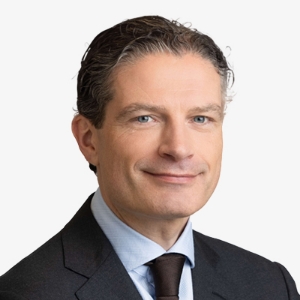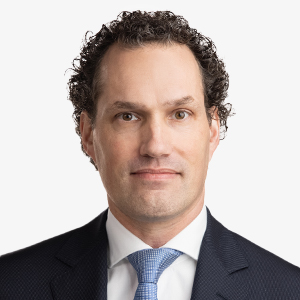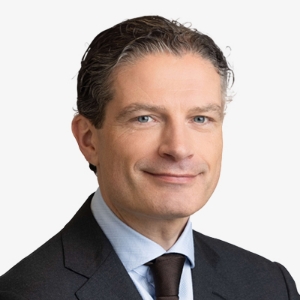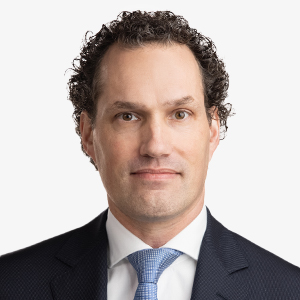Global Sustainable Equity
Seeks to invest in quality companies where sustainability reinforces competitive advantage
- Global, best ideas portfolio of 40-60 quality holdings
- Sustainability, value chain lens and engagement key to approach
- Risk-controlled portfolio, with high active share >75%
- Experienced, industry-leading investment team* supported by NB research and ESG platforms
- Established, long-term track record



Investment Philosophy
We seek to build a sustainable, future-proof portfolio by investing in companies that:


We use a value chain perspective to bottom-up assessment; a differentiated approach that looks across traditional sector classifications for compelling investment opportunities.


Investment process
We adopt a consistent and repeatable four-step process to build a resilient portfolio of high-quality and sustainable business models


ESG at Neuberger Berman
As an active manager, Neuberger Berman has a long-standing belief that ESG factors are an important driver of investment returns from both opportunity and risk mitigation perspectives.
- Neuberger Berman scored above both the median of all reporting signatories and of large investment management peers globally1 for our ESG integration efforts in every reported category in the most recent UN-backed Principles for Responsible Investment (PRI) assessment report2
- Member of PRI 2020 Leaders’ Group, awarded to 1% of PRI investment manager signatories3
- Innovative ESG investing team support development of proprietary research and investment-led implementation of ESG integration
- Based on the average scores of reporting investment management signatories globally with AUM greater than $50bn.
- For illustrative and discussion purposes only. PRI grades are based on information reported directly by PRI signatories, of which investment managers totaled 3,123 for 2023, 2,791 for 2021, 1,545 for 2020 and 1,247 for 2019. All PRI signatories are eligible to participate and must complete a questionnaire to be included. The underlying information submitted by signatories is not audited by the PRI or any other party acting on its behalf. Signatories report on their responsible investment activities by responding to asset-specific modules in the Reporting Framework. Each module houses a variety of indicators that address specific topics of responsible investment. Signatories’ answers are then assessed and results are compiled into an Assessment Report. Neuberger Berman pays a fee to be a member of PRI and the grades are only available to PRI members. Ratings referenced do not reflect the experiences of any Neuberger Berman client and readers should not view such information as representative of any particular client’s experience or assume that they will have a similar investment experience as any previous or existing client. Awards and ratings are not indicative of the past or future performance of any Neuberger Berman product or service. Moreover, the underlying information has not been audited by the PRI or any other party acting on its behalf. While every effort has been made to produce a fair representation of performance, no representations or warranties are made as to the accuracy of the information presented, and no responsibility or liability can be accepted for damage caused by use of or reliance on the information contained within this report. Information about PRI grades is sourced entirely from PRI and Neuberger Berman makes no representations, warranties or opinions based on that information.
- The PRI Leaders’ Group is based on a different theme each year. In 2020, the theme was climate reporting. All investor signatories – asset owners and investment managers – were eligible. To be considered for the Leaders’ Group 2020, signatories had to demonstrate a strategic approach to aligning their organization with the FSB’s Task Force on Climate-related Financial Disclosures (TCFD) in their 2020 responses to the PRI Reporting Framework.’ To assess this, UN PRI looked at their publicly disclosed responses throughout the climate change reporting indicators of the Strategy and Governance (SG) module, as well as whether they reported: publicly expressing support for the TCFD; having a board-approved implementation plan in place; how their organization is using scenario analysis; considering both short- and long-term climate risks; and working towards specific climate-related targets. Having screened all signatories against this year’s theme, a combined score using responses from across the Reporting Framework was used to identify, from that pool, the Leaders’ Group 2020.
Key Risks
Counterparty Risk: The risk that a counterparty will not fulfil its payment obligation for a trade, contract or other transaction on the due date.
Currency Risk: Investors who subscribe in a currency other than the base currency of the portfolio are exposed to currency risk. Fluctuations in exchange rates may affect the return on investment.
Liquidity Risk: The risk that the portfolio may be unable to sell an investment readily at its fair market value. In extreme market conditions this can affect the portfolio’s ability to meet redemption requests upon demand.
Market Risk: The risk of a change in the value of a position as a result of underlying market factors, including among other things, the overall performance of companies and the market perception of the global economy.
Operational Risk: The risk of direct or indirect loss resulting from inadequate or failed processes, people and systems, including those relating to the safekeeping of assets or from external events.
Sustainable Risk: The strategy may focus on investments in companies that relate to certain sustainable development themes and demonstrate adherence to environmental, social and corporate governance practices. This may mean the universe of securities from which the strategy can invest in may be smaller than that of other strategies and may underperform the market as a result.









